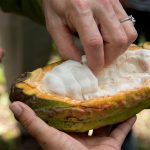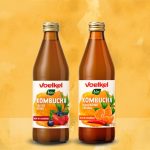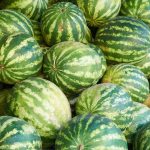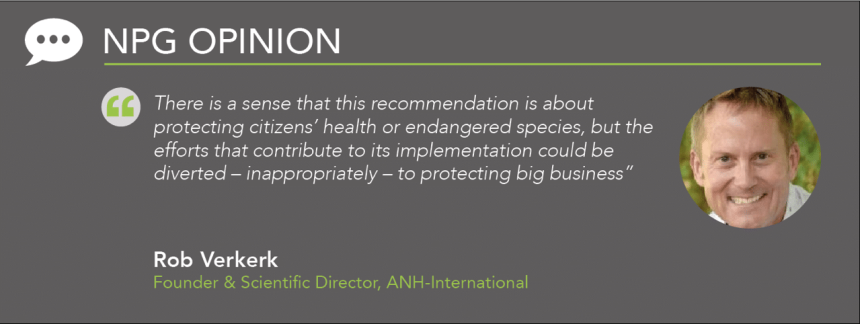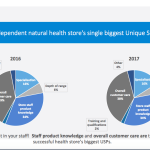Food multinationals make billions by maintaining the illusion that junk food and ready-meals are cheaper than home-cooked food made with wholefood ingredients, writes Dr Robert Verkerk.
The facts are increasingly clear: unhealthy diets and poor lifestyle are the primary causes of chronic disease and early death in our society. The diseases we get from these inappropriate life choices, most especially type 2 diabetes, obesity, heart disease and some of the most common forms of cancer, cause unnecessary suffering, often over many years. And these diet and lifestyle-related diseases are entirely preventable.
Here’s the societal dilemma revealed by copious research: more educated people suffer the least burden from these diseases because they make better diet choices. What we’re then told — and listen carefully to this — is that those who are less well off simply can’t afford the expensive, healthy food; they effectively have no alternative but to buy more junk food and ready-made meals because it’s all they can afford.
The real facts are different. The cost argument is an illusion; the education argument is more valid. Poorer people do, it seems, have less available information about healthy choices, and less desire to buy in whole food and cook from scratch. But this duality is maintained, we surmise, by a cleverly-arranged drip feed of information that keeps reinforcing the point that junk food and ready-made, supermarket-bought foods are the cheapest foods available.
“… this duality is maintained by a cleverly-arranged drip feed of information that keeps reinforcing the point that junk food and ready-made, supermarket-bought foods are the cheapest foods available”
Well, it’s bunkum. It’s part of a ploy to get a large swathe of society hooked on foods that hit that sweet spot in our brains that creates both physiological and psychological addiction. The likes of Nestle, Pepsi, General Mills, Kraft, Mars and Coca-Cola, have invested billions over the years learning how to get people addicted to their products. It’s a special combination of ingredients like salt, sugar, gluten and specific fats that hit parts of our brains that makes us feel both comforted and wanting more. If it’s perceived to be cheap, who cares that we buy more of it to get satisfied? It’s cheap after all. Our addiction doesn’t allow us to think rationally about our eating habits or calculate our total spend on foods like this. Let alone consider the long-term indirect costs of being made ill, often over a period of decades.
At the Alliance for Health International, we’ve been looking closely at this issue for some time. In our most recent analysis (March 2017), we compared a home-cooked chicken and vegetable meal that followed our own healthy-eating, Food4health guidelines, using ingredients bought from a low-cost supermarket (UK Asda, Walmart-owned), against a ‘comparable’ ready-made ‘chicken dinner’ meal from the same supermarket and a McDonald’s Big Mac meal. For each meal we included a ‘sweet’ to follow; some frozen berries for the home-cooked meal, a low-fat yoghurt for the supermarket meal and a McFlurry for the McDonald’s meal.
We analysed the meals in terms of their outright cost per person, the cost for a four-person family, the cost per 1000 calories and then in terms of the nutrition delivered. In British pounds, for the home-made, supermarket ready-meal and junk food meals, the costs per person were: £2.26, £2.05 and £5.38, respectively. The McDonald’s, while being cheap for eating out, was over twice the price compared with eating at home. When you multiply by four for a family, the price differential gets even bigger – yet we still think of the McDonald’s as a cheap meal.
Where it really gets interesting is when you look at it per 1000 kcal, this being roughly a third of an average adult’s daily energy intake. Now the prices were £2.00, £4.15 and £2.93 for the home-made, supermarket-bought and McDonald’s meals respectively! The fact that the meal that seemed cheapest initially had become over twice the price for a given amount of energy when compared with the food made from scratch reveals a key ploy on the part of the supermarkets. That’s about making you want for more. The supermarket ready-made meal and low-fat yoghurt deliver so little in the way of real nutrition, you would in all likelihood be hanging for an energy dense, high sugar snack, well before your next meal. And it’s this snacking culture that drives both Big Food profits along with spiralling rates of chronic disease.
We perhaps shouldn’t be too surprised with all of this. Home-prepared food made with largely whole food ingredients has had less technological processing, the latter needing to be paid for by the end consumer. It’s also got many fewer additives, that also cost money. Then you’ve got the costs of the fast food restaurants – and advertising, none of which apply to whole food ingredients. You’ve then got to factor in whether the food is ultimately addictive or not, and what else you might be tempted by when you’re in the supermarket, the local petrol station or corner store. Add all of that up each week and see how much it costs!
If, together, we can help break down the illusion that junk food and ready-made, TV-style dinners are the cheapest foods on the market, we can go a long way to ridding our society of the biggest single cause of unnecessary and preventable suffering. As one company said, let’s ‘just do it’!


